In a world where technology evolves faster than a toddler can throw a tantrum, government agencies are scrambling to keep pace. Enter govtech procurement, the unsung hero of public sector innovation. This process isn’t just about buying shiny gadgets; it’s about transforming how governments operate and serve their citizens.
Imagine a future where bureaucratic red tape unravels like a poorly knitted sweater, making way for streamlined services that actually work. Govtech procurement holds the key to unlocking that future, offering a way for agencies to tap into cutting-edge solutions without losing their minds—or their budgets. It’s not just procurement; it’s a ticket to a more efficient, tech-savvy government. So buckle up as we dive into the world of govtech procurement and discover how it’s reshaping public service for the better.
Table of Contents
ToggleUnderstanding Govtech Procurement
Govtech procurement involves the processes by which government agencies acquire technology solutions. This acquisition is essential for modernizing operations and enhancing public service delivery.
Definition and Scope
Govtech procurement encompasses a range of activities related to technology acquisition within government agencies. These activities include identifying needs, evaluating solutions, and negotiating contracts. Procurement can cover various tech domains, such as software, data analytics, and cybersecurity tools. Regulations shape the procurement framework, ensuring transparency and competition, which are crucial for responsible allocation of public resources. Comprehensive strategies guide agencies in integrating technology into their operations effectively.
Importance in the Public Sector
Govtech procurement plays a pivotal role in the public sector by fostering innovation and efficiency. It enables agencies to adopt cutting-edge technologies that streamline processes and improve service delivery. Enhanced technology solutions help address citizen needs more effectively, promoting engagement and satisfaction. Furthermore, successful procurement practices can reduce operational costs and enhance overall productivity. By investing in modern technology, government agencies position themselves to meet future challenges, ensuring they remain adaptable and responsive in a rapidly changing environment.
Key Principles of Govtech Procurement

Govtech procurement revolves around several key principles that ensure successful technology integration for government agencies.
Transparency and Accountability
Transparency defines the process of govtech procurement. It requires clear communication regarding project goals, budgets, and timelines. Agencies must disclose decision-making criteria, allowing stakeholders to understand the rationale behind choices. Accountability comes into play by holding agencies responsible for adhering to established procurement standards. Monitoring the utilization of public funds fosters trust among citizens and ensures efficient resource allocation. By implementing transparent practices, agencies can mitigate corruption risks and enhance public confidence in government operations.
Innovation and Efficiency
Innovation drives the need for modern technology in government operations. Emphasizing cutting-edge solutions allows agencies to improve service delivery. Leveraging data analytics and advanced software enhances decision-making capabilities. Efficiency stems from optimized processes, which reduces time and costs associated with service provision. When agencies focus on innovative procurement, they cultivate competition among tech providers, resulting in better solutions at lower prices. The push for modernization ensures that public services remain relevant and capable of meeting citizens’ evolving needs effectively.
Challenges in Govtech Procurement
Govtech procurement faces several challenges that hinder effective technology acquisition. Two primary hurdles include budget constraints and vendor management.
Budget Constraints
Government agencies often operate within limited budgets. These financial restrictions affect their ability to invest in innovative technologies. Allocating funds for new projects can become complex, as agencies must prioritize essential services over new tech solutions. Additionally, unexpected costs can arise during implementation, further straining available resources. Such budget issues may result in agencies postponing necessary upgrades, keeping them from improving their operations.
Vendor Management
Managing relationships with technology vendors presents its own set of challenges. Agencies frequently deal with multiple suppliers across diverse technology domains. Maintaining consistent communication can become difficult, leading to missed opportunities or delays in project timelines. Establishing clear performance metrics is crucial to ensure accountability and quality delivery. Furthermore, an over-reliance on specific vendors can create risks, including reduced competition and inflated prices. Developing robust vendor evaluation processes helps agencies secure effective partnerships while fostering innovation.
Best Practices for Successful Govtech Procurement
Effective govtech procurement hinges on strategic practices that enhance outcomes. Engaging stakeholders is crucial for success.
Stakeholder Engagement
Stakeholder engagement fosters collaboration. Involving agency staff, policymakers, and citizens ensures alignment on project goals. Gathering input early helps identify needs and expectations. Regular communication maintains transparency and builds trust. Engaged stakeholders are more likely to support initiatives, leading to smoother implementation. Feedback loops allow agencies to refine processes and address concerns promptly. Building relationships with technology providers also enhances understanding of market solutions, facilitating competitive bidding.
Leveraging Technology
Leveraging technology streamlines procurement processes. Utilizing digital platforms enhances efficiency, enabling agencies to evaluate vendor proposals quickly. Automating workflows reduces manual errors and saves time. Data analytics plays a significant role in assessing project impacts and tracking progress. Agencies can make informed decisions by analyzing historical procurement data and performance metrics. Cloud-based tools facilitate collaboration between teams, improving communication. Technology not only simplifies management but also enhances accountability, promoting better outcomes in govtech procurement. By adopting progressive technology solutions, agencies increase their chances of successful project delivery.
Future Trends in Govtech Procurement
Future trends in govtech procurement highlight advancements in technology and evolving priorities. Agencies increasingly embrace innovative practices aimed at enhancing efficiency and service delivery.
Increasing Data Utilization
Data utilization gains momentum as government agencies seek insights from analytics. Agencies analyze large data sets to inform decision-making and improve service delivery. Leveraging real-time data enables agencies to enhance operational efficiency and predict citizen needs. Policymakers utilize insights to refine strategies and allocate resources effectively. Implementing robust data governance policies ensures compliance and security while enhancing accessible information. To adapt to dynamic environments, agencies integrate data management tools that optimize procurement processes and foster transparency.
Focus on Sustainability
Sustainability emerges as a key focus in govtech procurement strategies. Agencies prioritize environmentally friendly technologies, seeking solutions that minimize ecological impact. Emphasizing sustainable practices aligns government initiatives with broader climate goals. Implementing green procurement policies encourages suppliers to adopt eco-friendly strategies. Investing in energy-efficient technologies reduces operational costs and promotes responsible resource use. As agencies cultivate partnerships with sustainable vendors, they contribute to a resilient economy while fulfilling public expectations. Sustainability becomes an integral part of the procurement framework, shaping future government initiatives.
Govtech procurement stands at the forefront of modernizing government operations and enhancing public service delivery. By embracing innovative practices and prioritizing transparency and accountability, agencies can navigate the complexities of technology acquisition effectively. The focus on stakeholder engagement and data utilization not only streamlines processes but also fosters collaboration among all parties involved.
As agencies continue to adapt to evolving technological landscapes, the commitment to sustainability will play a pivotal role in shaping future initiatives. This proactive approach ensures that governments remain responsive to citizen needs while promoting responsible resource use. Ultimately, the evolution of govtech procurement is essential for creating a more efficient and innovative public sector that meets the challenges of tomorrow.




